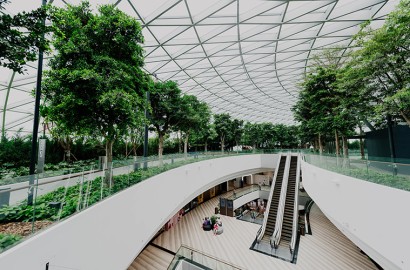Introduction:
The way we work has undergone a radical transformation in recent years. Once considered a luxury or a temporary solution, remote work is now an essential part of modern business operations. As technology continues to advance and work-life balance priorities shift, companies are rethinking their approach to collaboration, productivity, and talent acquisition. This transformation is not limited to the workplace; it is reshaping the foundations of workplace culture.
1. Increased Productivity and Flexibility
Studies show that remote workers often achieve higher productivity due to fewer distractions, flexible schedules, and greater autonomy. Employees can work in environments where they feel most comfortable, leading to better results and increased job satisfaction.
2. Expanding the Talent Base
Remote work allows companies to hire top talent from anywhere in the world. This global reach means companies can build diverse, high-performing teams without being bound by geographical boundaries.
3. Cost Savings for Businesses
From reducing office space costs to lower utility bills and reducing office benefits, remote work can significantly reduce operational costs. Many companies reinvest these savings in technology improvements, employee wellness, or business growth.
4. New Challenges in Communication and Culture
Despite the many benefits of remote work, it also presents challenges—particularly when it comes to communication and maintaining a strong work culture. Companies must adopt new tools and strategies to foster collaboration, engagement, and team spirit across time zones.
Conclusion:
Remote work is no longer just a trend—it's the new normal. Companies that adapt to this evolving landscape will thrive by embracing flexibility, technology, and a people-centric approach. Looking ahead, the most successful organizations will be those that not only support remote work but also reimagine how teams communicate, collaborate, and thrive in a digital-first world.
Related posts:
In today's interconnected digital world, a strong online presence is no longer just an advantage—it's a necessity. Whether you're a small local shop or a global brand, how your business appears online can make or break its success. As 2025...
As the world faces increasing environmental challenges, the role of architecture is evolving. Sustainable architecture is no longer the preserve of a niche group; it's a global necessity. By incorporating eco-friendly practices into design and construction, architects and developers are...


 Smart Cities: How Technology is Transforming Urban Living
Smart Cities: How Technology is Transforming Urban Living
 The Rise of Remote Work: How It's Reshaping the Modern Workplace
The Rise of Remote Work: How It's Reshaping the Modern Workplace
 Why Branding Matters More Than Ever in 2025
Why Branding Matters More Than Ever in 2025
 The Future of Work: How Remote Teams Are Changing the Business Landscape
The Future of Work: How Remote Teams Are Changing the Business Landscape
 Why is a strong online presence essential for business success in 2025?
Why is a strong online presence essential for business success in 2025?
 The Future of Sustainable Architecture: Designing for a Greener Future
The Future of Sustainable Architecture: Designing for a Greener Future